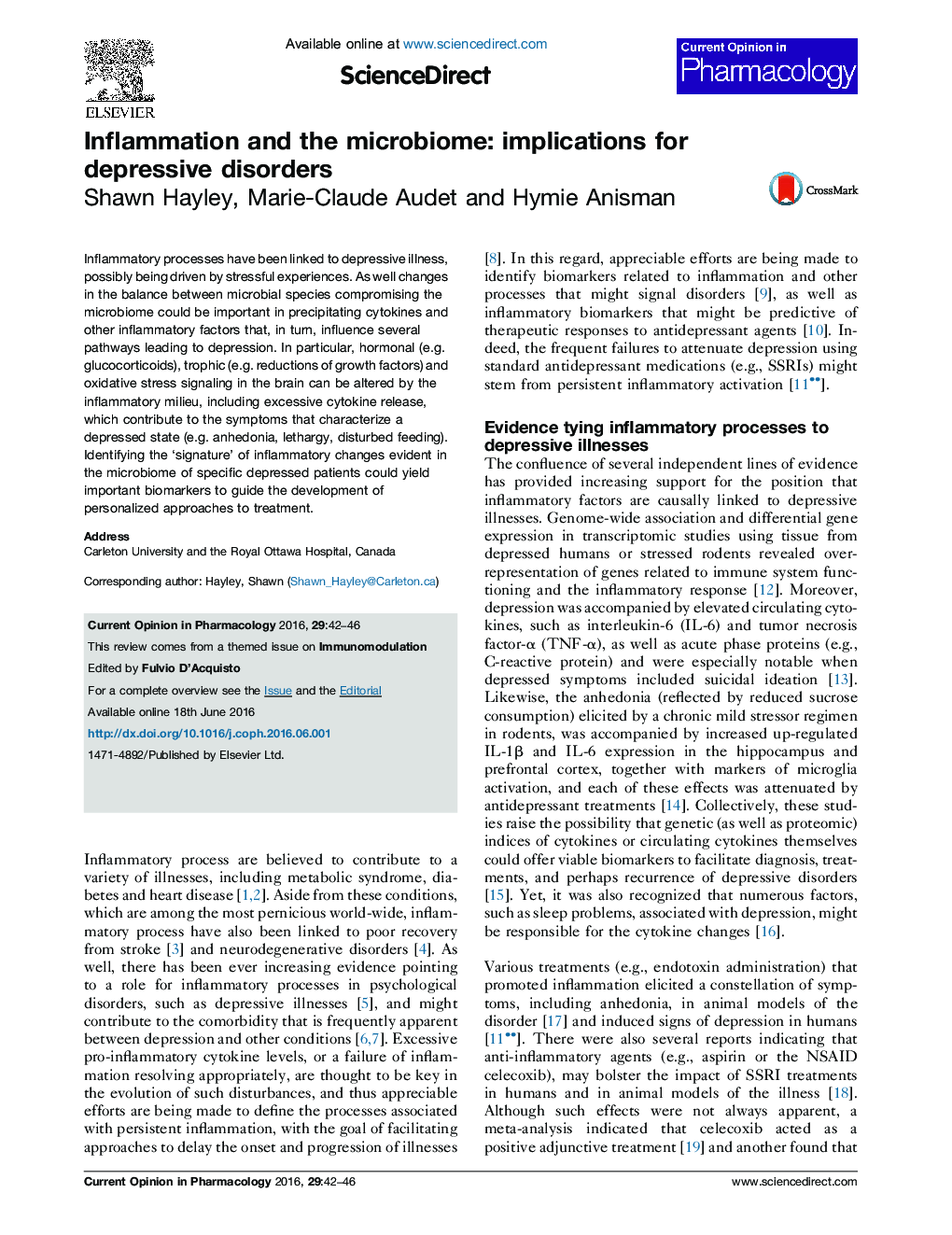| Article ID | Journal | Published Year | Pages | File Type |
|---|---|---|---|---|
| 5825867 | Current Opinion in Pharmacology | 2016 | 5 Pages |
â¢Activation of the inflammatory immune system may contribute to depressive disorders.â¢Disturbed balance between varied gut bacteria could activate inflammatory processes.â¢Altered gut bacteria balances can have protracted effects on mood processes.â¢Circulating and microglial derived cytokines may mediate gut-brain effects on mood.â¢Prebiotics and probiotics could positively influence responses to a disturbed microbiome.
Inflammatory processes have been linked to depressive illness, possibly being driven by stressful experiences. As well changes in the balance between microbial species compromising the microbiome could be important in precipitating cytokines and other inflammatory factors that, in turn, influence several pathways leading to depression. In particular, hormonal (e.g. glucocorticoids), trophic (e.g. reductions of growth factors) and oxidative stress signaling in the brain can be altered by the inflammatory milieu, including excessive cytokine release, which contribute to the symptoms that characterize a depressed state (e.g. anhedonia, lethargy, disturbed feeding). Identifying the 'signature' of inflammatory changes evident in the microbiome of specific depressed patients could yield important biomarkers to guide the development of personalized approaches to treatment.
